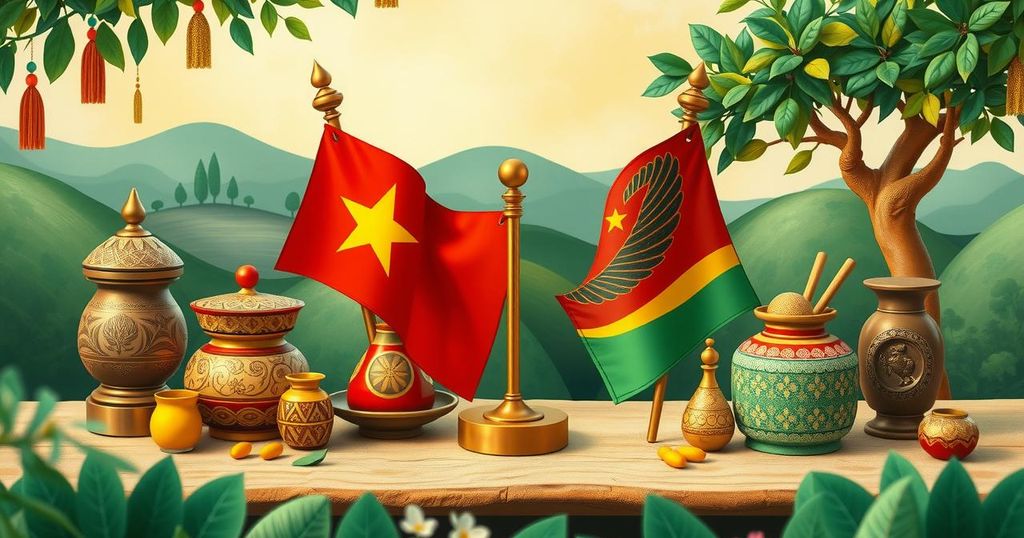Walid Jumblatt shares his perspectives on Israel’s aggressive policies, the role of Hezbollah, and Syria’s new leadership amidst a fluctuating Middle Eastern landscape. He emphasizes the need for foreign aid to rebuild Lebanon, calls for the inclusion of Hezbollah in political dialogue, and advocates for giving Syria’s new leadership a chance. Jumblatt insists on the importance of establishing a Palestinian state as integral to any peace with Israel, amid ongoing conflicts following recent escalations involving Hamas and Israel.
Walid Jumblatt, a prominent Lebanese politician and leader of the Druze community, remains a significant voice in Middle Eastern politics despite stepping back from his leadership role in the Progressive Socialist Party in 2023. His insights come during a tumultuous time marked by Syria’s regime change, escalating U.S.-Iran tensions, and a diminished Hezbollah. With Israel’s actions affecting the entire Arab world, Jumblatt emphasizes the need for a unified Arab understanding of Israel’s expansionist policies.
In a recent interview with The National, Jumblatt discussed Israel’s sustained military operations in Lebanon and the purported ceasefire with Hezbollah, which he considers ineffective. He articulated that Israel now believes it can preemptively strike potential threats anywhere, marking a dangerous precedent. Despite a ceasefire agreement mediated by the United States, the continuing Israeli airstrikes in southern Lebanon have prompted concerns about Israel’s genuine intentions for peace.
Jumblatt expressed admiration for the Lebanese Army’s efforts to maintain order amid these tensions, highlighting the necessity for international aid to rebuild areas devastated by conflict. He pointed out that Lebanon needs foreign support to recover economically, as internal resources are insufficient to manage the extensive damage caused by Israeli interventions, rated at approximately $14 billion by the World Bank.
Hezbollah must adapt to its changing environment, according to Jumblatt, who asserts that traditional methods of armed resistance are no longer viable. The group, having lost key leaders, faces unprecedented scrutiny and pressure from various fronts to alter its approach. He emphasizes Hezbollah’s integral role in Lebanese society, underscoring the importance of political inclusion.
Additionally, Jumblatt has taken a forward-looking stance regarding Syria’s new leadership under Ahmad Al Sharaa. He advocates providing Al Sharaa the opportunity to govern effectively, for the benefit of the Syrian populace. Given the long-standing complexities with the Assad regime, Jumblatt’s recent interactions reflect a shift towards a potentially constructive relationship.
Israel’s ongoing conflicts and overtures toward the Druze community only amplify the region’s volatility. Senior Lebanese figures, including Jumblatt, have denounced attempts at normalization with Israel while highlighting Lebanon’s unrecognized statehood and unresolved territorial claims. Jumblatt remains firm in his stance against succumbing to foreign pressures, asserting that any peace must correspond with the establishment of a Palestinian state.
In light of recent events, including Hamas’s attacks on Israel and the ensuing Gaza conflict, Jumblatt’s concerns about the humanitarian crisis and aggressive military responses signal a call for regional solidarity and strategic policy reformation to address the dire circumstances faced by Palestinians and the broader Middle East community.
In conclusion, Walid Jumblatt’s insights reflect the pervasive tensions in the Middle East and underline the complex interplay of local and regional politics. His calls for a unified Arab response to Israeli policies, an understanding of Hezbollah’s societal role, and a progressive approach to Syrian governance are crucial for navigating this tumultuous landscape. The evolving dynamics necessitate deliberate engagement from regional players to foster stability and pave the way for a sustainable resolution to ongoing conflicts.
Original Source: www.thenationalnews.com




